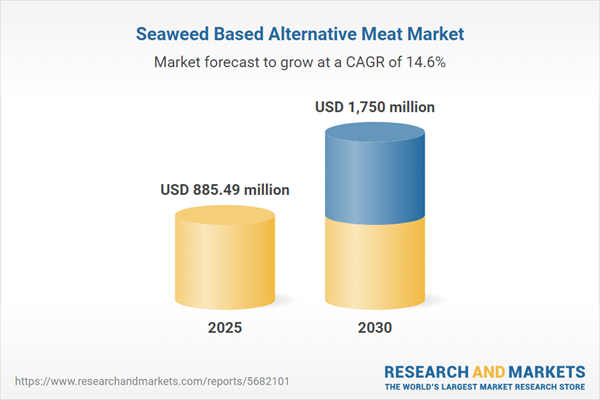Introduction
As global food systems evolve to meet the demands of a burgeoning population, the spotlight is shifting toward innovative protein sources. The seaweed-based alternative meat market, projected to reach an impressive $1.75 billion by 2030, is at the forefront of this revolution, ushering in a new era of sustainable and health-conscious food options.
Market Growth and Drivers
The seaweed protein market is harnessing the power of increased consumption and cultivation efficiency. With the global population soaring towards 9.8 billion by 2030, traditional meat sources are straining under environmental pressures. The cultivation of seaweed, known for its myriad health benefits—including bioactive compounds like vitamins, minerals, and peptides—presents a viable alternative that aligns with a growing movement toward plant-based diets.
Investment Trends in Plant-Based Foods
A key catalyst for the expansion of the seaweed-based market is the surge in investments across the broader plant-based food industry. In 2023 alone, global investments in this sector hit approximately $8.5 billion, with plant-based meat and seafood products receiving critical funding for innovation in production techniques. Governments worldwide are enacting policies to bolster local plant-based markets, with Canada committing over $110 million toward increasing the plant-based protein supply.
North America’s Leading Role
North America, particularly the United States and Canada, is poised to dominate the seaweed-based alternative meat market. With a notable rise in vegetarianism—19% of Mexico’s population identified as vegetarian in recent surveys—the demand for alternatives is rapidly escalating. This trend is coupled with an increasing awareness of the environmental impacts associated with meat production, heralding a shift toward seaweed and other sustainable proteins.
Consumer Preferences and Future Outlook
Consumers are increasingly drawn to the nutritional benefits of seaweed, alongside growing concerns about sustainability and health. As research continues to unveil the potential of various seaweed species for culinary applications, the market is expected to flourish. This growth is not just a trend but a reflection of a broader shift in food preferences, embracing healthful, eco-friendly, and diverse food options.
Key Takeaways
- The seaweed-based alternative meat market is set to grow from $885 million in 2025 to $1.75 billion by 2030.
- Supporting factors include increased global population, investments in plant-based foods, and specific health benefits associated with seaweed.
- North America is projected to lead in market share, driven by a rising vegetarian population and environmental awareness.

